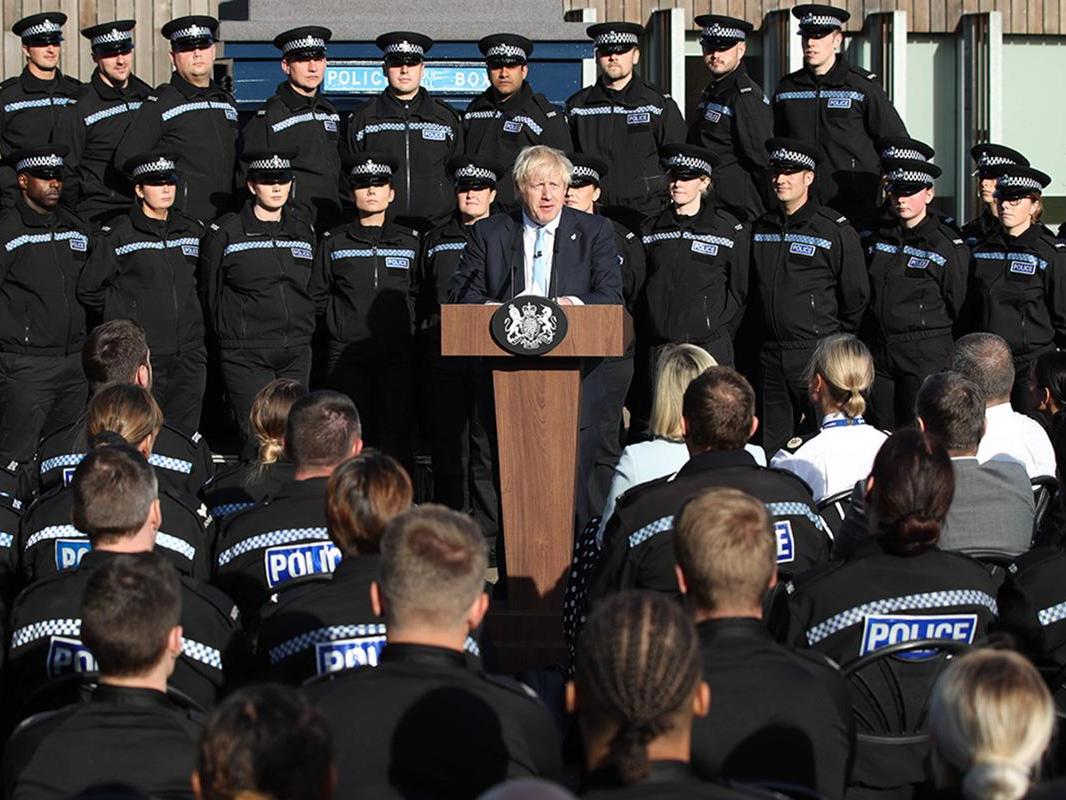Tory woes continue as record as ‘party of law and order’ comes under attack
Figures showing arrests have halved since 2010 add to concern over plummeting prosecutions, Lizzie Dearden writes

The Conservatives have long liked to call themselves “the party of law and order”, but that title is coming under attack.
After years of plummeting prosecution rates, meaning that only 6 per cent of recorded crimes in England and Wales now result in a charge, Labour is turning the spotlight on arrests.
Newly-released figures show that the number of arrests by police have halved since 2010, from 1.3 million a year to just over 600,000 in 2021.
At the same time, the number of crimes reported has risen from 4.3 million to 5.4 million and the time taken to respond to 999 calls has risen.
Yvette Cooper, the shadow home secretary, said protecting law and order “should be any government’s first priority”.
“Just as the prime minister disregards the law in Number 10, his government is failing to back police to enforce it on our streets.,” she added.
“Communities across the country are becoming increasingly frustrated when nothing is done about crime and antisocial behaviour.
“When the public report crimes, they expect a quick and strong response. But despite the best efforts of policing, Priti Patel’s Home Office is completely letting everyone down.”
In January, the prime minister claimed in parliament that the government had “cut crime by 14 per cent”, when figures had actually risen.
Boris Johnson was reprimanded by the statistics watchdog over the statement, which was repeated in a Home Office press release, because it excluded surging fraud offences.
The Office for National Statistics said that while some types of crime had decreased over the previous year, falls appeared to be tied to Covid lockdowns and “certain offence types are returning to or exceeding the levels seen before the pandemic.”
The government has launched numerous policies and reviews pledging to reduce crime and increase prosecution rates.
When Johnson became prime minister in 2019, he put crime at the heart of his first speech in Downing Street.
“My job is to make your streets safer – and we are going to begin with another 20,000 police on the streets and we start recruiting forthwith,” he said.
The campaign has repeatedly been touted by ministers as evidence of the Conservatives’ crime credentials.
“As the party of law and order, we are well on track to increasing police officer numbers across all forces,” Priti Patel told parliament in December 2020.
“People across the country rejected Labour’s political games and voted for the Conservative party - the authentic party of law and order in Britain,” the home secretary added in May last year.
An unprecedented recruitment drive did start, and has been hitting targets, but the officers being brought in still do not bring police numbers back to those seen before cuts started in 2010.
The constables being recruited also do not replace the rank or experience of the senior officers lost, while a long-running shortage of detectives hampers investigations.
In March, the policing watchdog found the recruitment push increased risks that racist and misogynist officers could slip through checks.
HM Inspectorate of Constabulary warned that “in too many cases, the system fails” to spot unsuitable officers during the recruitment process, adding: “The sheer magnitude and speed of the police uplift programme inevitably carries risks. There is a heightened danger that people unsuited to policing may get through and be recruited.”
The public mood has changed since 2019. While the public still want crime to be reduced, for police to come when they call, and to see bobbies on the beat, there is also significant concerns over the presence of misogynist, racist and even criminal police officers in the ranks.
After years of promises, people want to see results and the “party of law and order” could have a challenge on its hands to retain that title.


